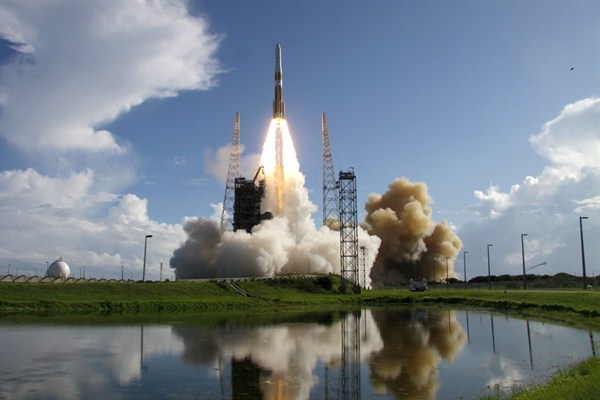When President Donald Trump signed the latest National Defense Authorization Act last month, he brought into existence the United States Space Force, the sixth branch of the country’s military. The name likely appeals to Trump for the same reasons that it appalls others: It is attention-grabbing and frames the issue of space in terms of American military dominance.
At least initially, the new Space Force represents only a modest organizational change, one that is essentially neutral in terms of personnel and budgetary impact. A skeptical Congress appropriated only $40 million of its $738 billion military budget for the new endeavor. At the same time, it would be a mistake to dismiss the move as a lot of bluster over bureaucratic reshuffling. Creating the Space Force sets up structural changes and reinforces approaches that could hasten a costly and destabilizing arms race in space.
Since the dawn of the space age in the 1950s, satellites have been used for strategic purposes such as gathering intelligence and detecting missile launches. Today, most modern militaries consider satellites indispensable for a variety of missions: guiding munitions and drones, communicating with globally deployed personnel, predicting weather patterns and surveilling targets. As a global power with military bases around the world, this dependence is particularly acute for the United States. But satellites are also fragile, vulnerable to interference, and expensive to replace, leaving the Pentagon in the uncomfortable position of relying on something that is difficult to defend.

